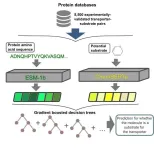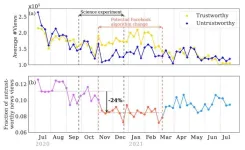Psoriasis, a chronic skin condition affecting over 6 million people in Europe, is characterised by rapid skin cell production, leading to scaling and inflammation.2, 3 While it has long been suspected that stress plays a role in exacerbating psoriasis,4 this research offers conclusive evidence of this link.
In the study, psoriatic lesions were induced in healthy human skin xenografts on Severe Combined Immunodeficiency (SCID)/beige mice (n=25) through the injection of autologous, in vitro IL-2-preactivated peripheral blood mononuclear cells. After achieving lesion remission with topical dexamethasone, the mice were exposed to either sonic (sound) or sham stress for 24 hours. The recurrence of psoriatic lesions was then tracked over the following 14 days.
Remarkably, sonic stress led to a relapse of psoriatic lesions in all human skin xenografts within 14 days. This was accompanied by significant changes in psoriasis-related skin phenomena, including increased epidermal thickness, K16 expression, keratinocyte proliferation, anti-microbial peptide expression, and immune activation of intraepidermal cells.
Further analysis showed that sonic stress significantly increased immune cell presence in the skin and elevated proinflammatory mediators like CXCL10, IL-22, IL-15, IL-17A/F, IFN-γ, and TNFα. Additionally, neurogenic inflammation biomarkers, such as nerve growth factor (NGF) and substance P (SP), were upregulated. Sonic stress also led to elevated levels of tryptase, indicating mast cell activation, and increased expression of NK-1R, the receptor for SP.
“Psychoemotional stress triggers the release of proinflammatory neuropeptides like SP, leading to neurogenic skin inflammation by activating immune cells, particularly through mast cell degranulation,” explains Professor Amos Gilhar, lead researcher from the Skin Research Laboratory, Bruce Rappaport Faculty of Medicine, Technion-Israel Institute of Technology, Haifa, Isreal. “This is further amplified by corticotropin-releasing hormone (CRH) and NGF, which heighten inflammation and promote keratinocyte hyperproliferation, thereby triggering and worsening psoriatic lesions in susceptible individuals."
The research team also tested the efficacy of aprepitant, an FDA-approved anti-emetic neurokinin-1 receptor (NK1-R) antagonist, in preventing stress-induced psoriasis relapse. Aprepitant prevented relapse in 80% of cases and normalised most inflammatory markers.
“Aprepitant shows great promise as a potential therapy for stress-induced psoriasis exacerbations,” Professor Gilhar remarks, though he cautioned about its off-label use and the need for further safety data. “Aprepitant selectively targets the SP-induced component of neurogenic inflammation but doesn’t impact other mediators like NGF and CRH. Combining NK-1R antagonists with other treatments may prove more effective.”
Reflecting on the broader implications of the study, Professor Gilhar adds, “In line with previous stress research in mice, our study using the ‘humanised’ psoriasis mouse model identifies SP/NK-1R signalling as a promising target for therapeutic intervention in stress-triggered or aggravated psoriasis. It also points to additional candidate targets, including NGF, mast cell activation/degranulation, and CRH/CRH-R1 signalling.”
The study underscores the complex link between the nervous system and the immune response in psoriasis. "Recognising how stress influences psoriasis allows us to refine our treatment approaches to better serve patients," Professor Gilhar furthers. “Looking ahead, our team plans to explore the clinical potential of NK-1R antagonists and to delve deeper into the role of stress management in psoriasis care.”
END
Note to editors:
A reference to the EADV Congress 2024 must be included in all coverage and/or articles associated with this study.
For more information or to arrange an expert interview, please contact press@eadv.org.
About the study author:
Professor (emeritus) Amos Gilhar is a faculty member at Technion’s Faculty of Medicine. His research focuses on the molecular events leading to skin ageing, utilising advanced techniques like RNA-Seq. With over three decades of experience in immunodermatology, Professor Gilhar's lab has developed internationally recognised humanised mouse models, now widely used in pre-clinical drug trials. His recent work includes creating models for autoimmune skin diseases like psoriasis and alopecia areata. In 2006, he received the EM Farber Research Award for Excellence in Research from the Society for Investigative Dermatology.
About EADV:
Founded in 1987, EADV is a non-profit organisation with a vision to form a premier European Dermatology-Venereology Society. The Academy counts over 11,000 members from all around the globe, providing a valuable service for every type of dermatologist-venereologist professional. The EADV is dedicated to advancing patient care, education and research by providing a unique platform to bring people together and share ideas.
This year, the EADV Congress will take place in Amsterdam, The Netherlands, and online from 25-28 September 2024. Find out more: https://eadv.org/congress/
References:
Keren, A., Zeltzer, A. A., Bertolini, M., Paus, R., & Gilhar, A. (2024). Psoriatic lesions in human skin xenotransplants in vivo are triggered by perceived stress and can be suppressed by the neurokinin-1 receptor antagonist aprepitant. Presented at European Academy of Dermatology and Venereology (EADV) Congress 2024.
European Commission. (2024). Two itchy-skin diseases that can go much deeper. Retrieved from https://projects.research-and-innovation.ec.europa.eu/en/horizon-magazine/two-itchy-skin-diseases-can-go-much-deeper
National Institute of Arthritis and Musculoskeletal and Skin Diseases. (2024). Psoriasis. Retrieved from https://www.niams.nih.gov/health-topics/psoriasis#:~:text=Psoriasis%20is%20a%20chronic%20(long,can%20be%20affected%20as%20well.
Rousset, L., & Halioua, B. (2018). Stress and psoriasis. International journal of dermatology, 57(10), 1165–1172. https://doi.org/10.1111/ijd.14032. END

